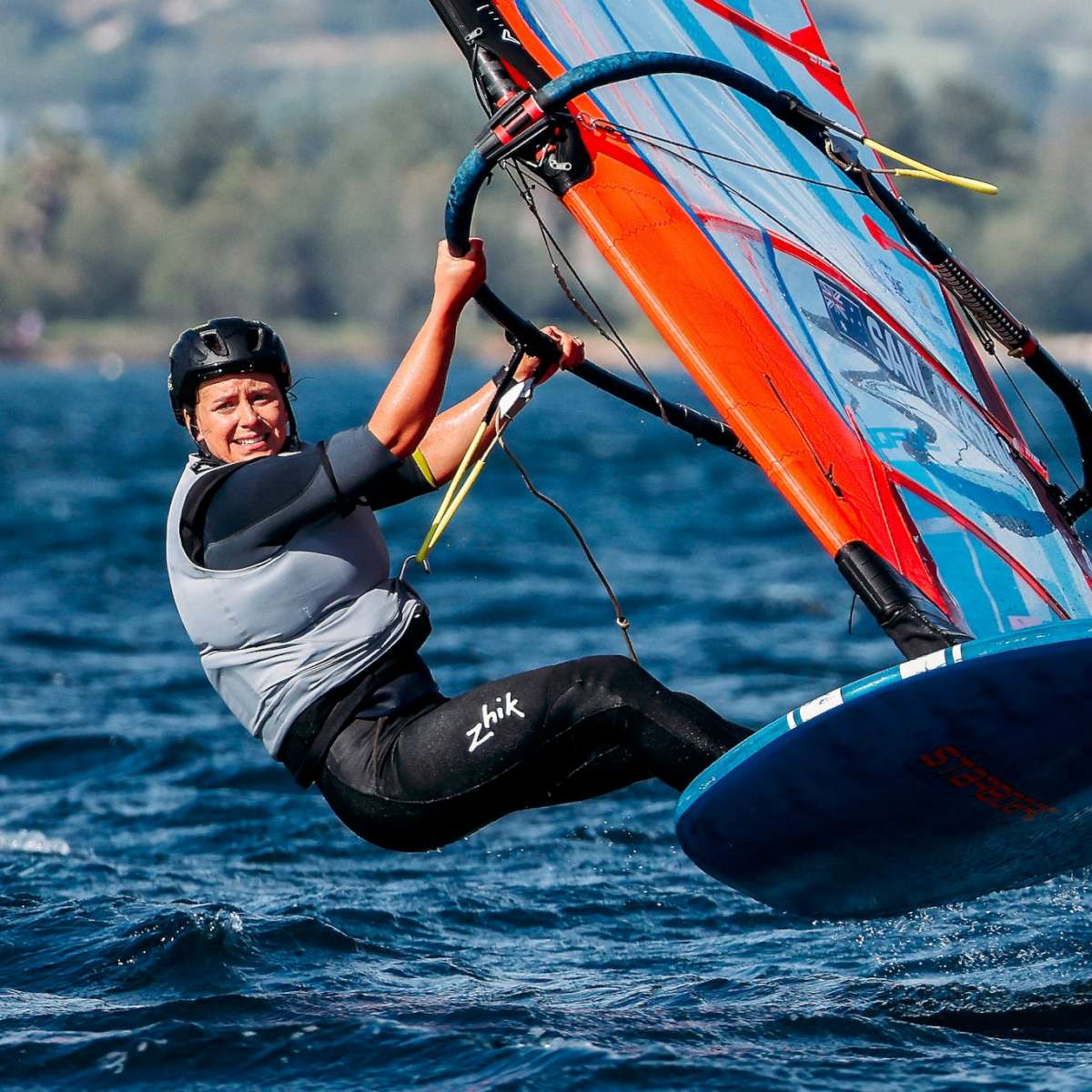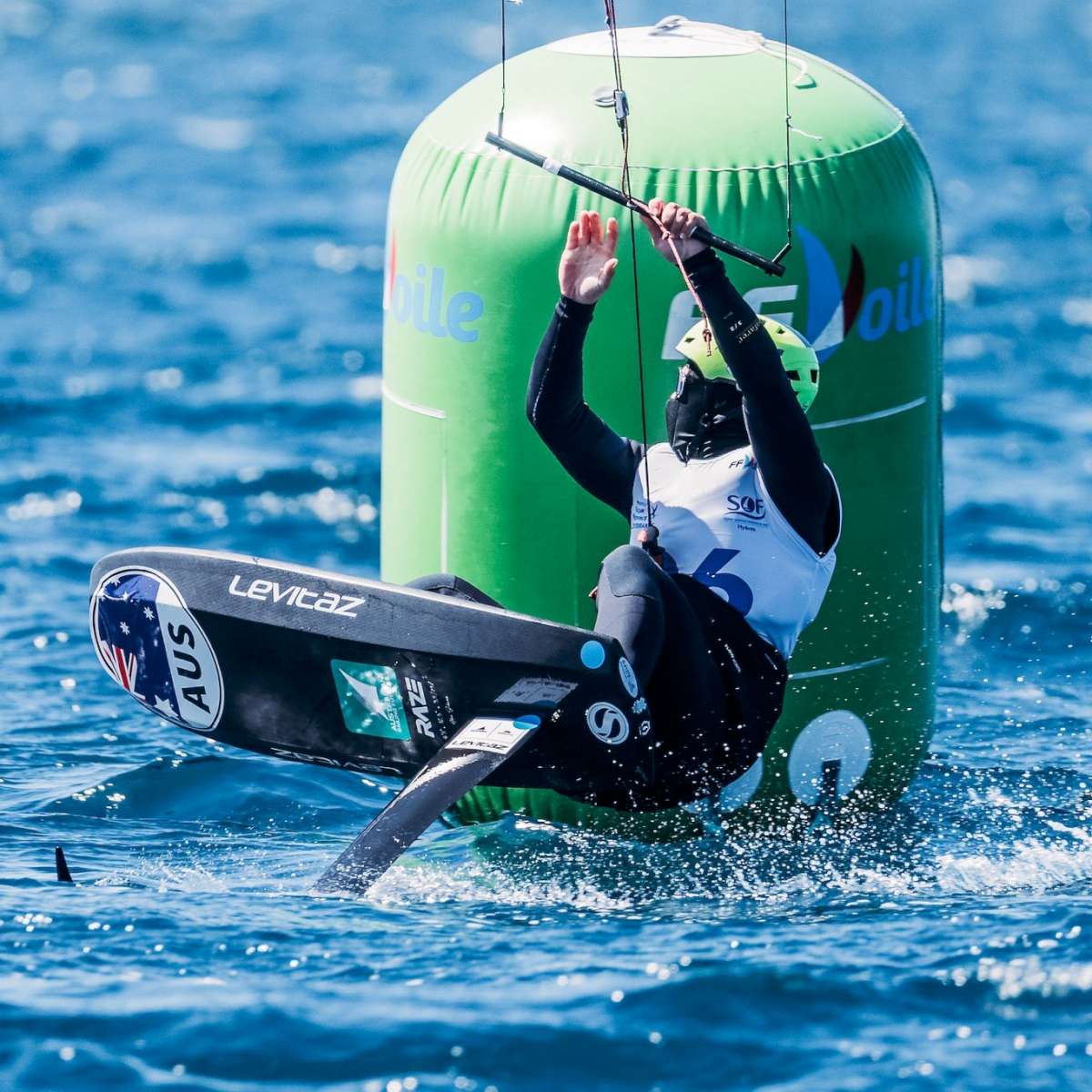By Marco Nannini / Global Solo Challenge
Trepidation mounts in A Coruna for the imminent arrival of Cole Brauer. The young talented American sailor is getting plenty of attention from US media as she’s poised to become the first American female to complete a solo nonstop circumnavigation by the three great capes and becoming the 18th women to ever achieve this goal.
With Forbes, People Magazine, the NY Times, NBC News and my other media outlets warming up the crowds for her arrival there are dozens of American citizens who took time off to make a trip to A Coruna and see her much awaited arrival. Her current expected time of arrival, depending on simulations, forecasts and performance, ranges from March 6th afternoon to March 7th midday. The weather forecast suggests she should try to come in as early as possible due to a low pressure system that will be chasing her and, just as I would have expected, she seems to have put her foot on the gas since yesterday which will mean she’ll be expected to arrive ahead of the developing depression. She will certainly do all she can to avoid arriving in boat breaking conditions which created the scenic setting for the arrival of the winner, Philippe Delamare on February 24th.
Unfortunately the Global Solo Challenge doesn’t just have moments of triumph and glee, it is a test of determination with huge emotional demands on skippers who must remain in control whether things go well or take a turn for the worse.
After suffering rigging problems on February 21st whilst sailing towards Cape Horn, more than 900 miles west of New Zealand, Alessandro Tosetti on Aspra has been forced to a long game of chess with the Pacific ocean weather systems. He needed to reach a safe harbour but the rigging issues prevented him to sail in heavy seas and could only sail on port tack otherwise he would have risked dismasting. Alessandro initially had to head north to find calmer waters. With no option to make landfall anywhere, he had to patiently wait for better and more favourable weather conditions. After several days of heading north-east he was finally able to set course to the west towards New Zealand hoping to reach Auckland.
A couple of days later, however, it became apparent that he would not be able to reach North Island before the arrival of a deep depression bringing strong and unfavourable winds. In coordination with RCC New Zealand, Alessandro altered course to reach the Chatham Islands and its only concrete dock at Waitangi Wharf where he could find shelter and let the storms blow past safely. Alessandro reached the remote and isolated islands and dock on Tuesday morning more than a week after his rigging problem occurred. We wish to express our gratitude for the vigilance, assistance and advice received by RCC New Zealand and for the assistance provided by Joss Thomas, Harbour Master at Waitangi.
After this unplanned stopover unfortunately Alessandro cannot rejoin the Global Solo Challenge as it is getting too late in the season to reach Cape Horn and sail up the South Atlantic before the end of the austral summer. We wish Alessandro all the best in resting, repairing the boat and making future plans.
Dealing with retirement from the event can be tough, after years of planning, preparations, sacrifices, time and expenses, it is not easy to come to terms with the end of such a long and complex project, and especially if at the time you happen to be docked in a remote island in the middle of the Pacific.
Alessandro Tosetti is the 9th out of the 16th starters that was been forced to retire from the event and whilst celebrating winners is important in every sport I believe that in such an enormous challenge as a solo non-stop circumnavigation we must recognise the efforts of all that took part, including those that, for reasons often beyond their control, had to withdraw or abandon the event.
Juan Merediz on Sorolla was the first to retire on November 10th with autopilot problems having sailed 1400 miles of the total 25000 course. On December 13th and after covering more than 13000 miles, Dafydd Hughes retired with Bendigedig in Hobart. It was a very valiant effort considering he was sailing the slowest and smallest boat in the event and had spent more than 100 days at sea. The root of his retirement was an autopilot issue and the fact that Dafydd really wanted to complete without stops, so although he could have restarted after repairs in Hobart he was very open in saying he had achieved what he wanted and that he was content with retiring then.
We have all followed with apprehension the dismasting and the epic trip that took Ari Kansakoski from north of the remote Crozet Islands, under jury rig, taking 25 days, to the African continent on January 19 forcing him to retire from the Global Solo Challenge in Durban.
February was the toughest month, 12 of the original 16 starters were still at sea which was somehow too good to be true. On February 8th Edouard de Keyser was forced to retire from the event after losing a rudder 600 miles south of Port Lincoln, it was the third time we had to coordinate vigilance and monitoring with the relevant rescue authorities but luckily Dafydd, Ari and Edouard all managed to reach a port without the need a rescue operation.
February 12th marked the official retirement of Ronnie Simpson on Shipyard Brewing and it was not an easy day. It was the first rescue operation of the event. After his dismasting and with an oncoming severe storm the skipper feared the situation could worsen and become a threat to his life, therefore requesting evacuation which was coordinated by RCC Argentina.
Just a few days later the level of apprehension and tension reached a completely new level…
[…]

Latest
Read all of the latest sailing news
View more
Racing
Dinghy and Yacht Racing News
View more
Offshore
News from the offshore world
View more
Cruising
Cruising Stories from around the world
View more
Boats & Gear
The latest boats and yachting gear
View more
Video
Watch everything sailing and boating
View more


















